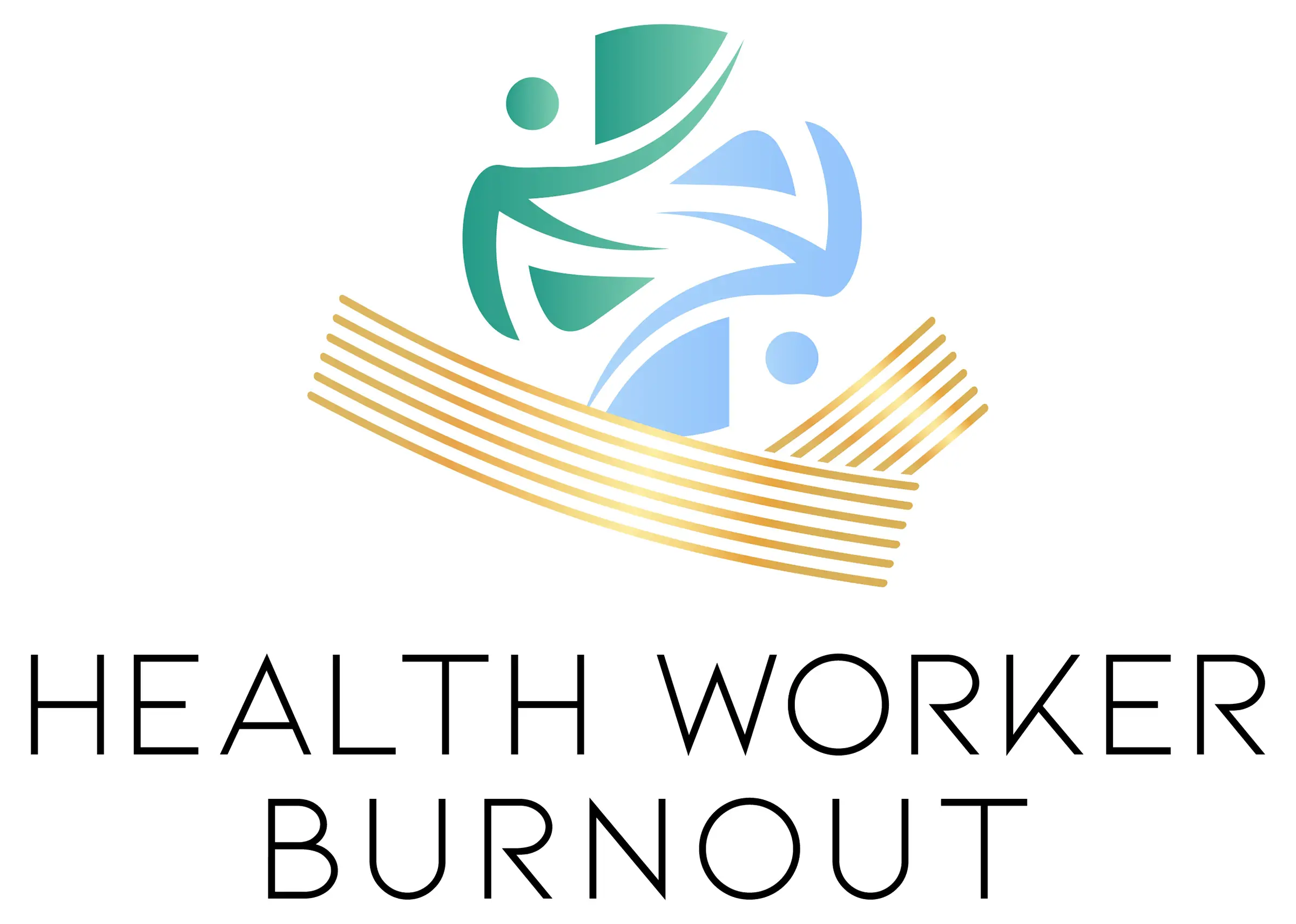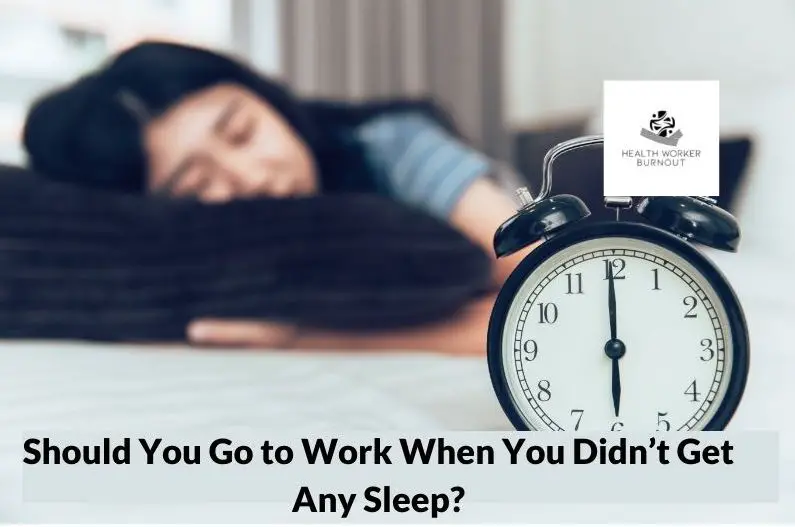So you weren’t able to get any sleep last night, and all you want to do is crawl back under the covers and hit snooze all day long, but you can’t because you need to go to work. Now you’re at a crossroads; either you suck it up and go to work, or you call in sick and stay home. So should you go to work if you didn’t get a decent night’s sleep?
When you didn’t get any sleep, you’ll need to consider the type of work you do (how strenuous or dangerous it is), whether your presence at work is necessary that day, and how understanding and lenient your boss is before deciding whether or not you should go to work.
In this article, we’ll discuss the things you need to consider when deciding whether or not to go to work with little to no sleep and how to get through your workday if you do decide to go to work. So let’s get straight into it!
What To Consider When Deciding Whether To Work Without Any Sleep
If you couldn’t get any sleep during the night or only got a few hours of sleep, you’ll be exhausted the next morning and will consider calling in sick to skip your workday. But should you do that? There’s no definitive answer to this question, but there are a few things you will need to consider before making a decision.
The Type of Job You Have
The first consideration is the type of job you have. Suppose your job requires you to operate with heavy or dangerous equipment, work with company finances and major expenses, or be the face of the company to its customers. In that case, sleep deprivation will make doing your job very difficult. When we are sleep deprived, we are more easily distracted, we get angry quicker, and we lack the patience required when working with people.
If Your Presence Is Needed
The second thing to consider is whether your presence is absolutely necessary at work that day. If you have tasks that are due on the day that you are sleep deprived, have meetings that can’t be rescheduled, or can’t get someone else to cover your shift, you won’t be able to take the day off, but if your presence isn’t necessary, it’d be better to take the day off.
The Leniency of Your Boss
Lastly, you’ll need to consider how lenient your boss is. If you call your boss and explain your situation to them, it can go one of two ways; they’ll understand that you won’t be able to do your job effectively and give you the day off, or they’ll say that you need to come into work regardless. However, most of the time, your boss should be understanding enough to give you a full day off or at least agree to let you work only a half-day.
In the end, you’ll need to be the one to decide whether you think you should stay home or go to work, and regardless of your situation, there are a few things that you can do to make the most of your workday, which we’ll discuss in the next section.
How To Get Through Your Workday With Little to No Sleep
So you’ve decided that you will, in fact, go to work today. Here’s how you can get through your sleepy day at work and make it out the other side in one piece.
Before Work
First of all, let’s discuss a few things you can do in the morning to set yourself up for success before you even get to work.
Don’t Hit Snooze
If you’ve managed to get any sleep throughout the night, you’ll have a rude awakening in the morning when your alarm goes off, and your immediate instinct will be to hit the snooze button. However, you shouldn’t. The few extra minutes of sleep you get until your alarm goes off again isn’t refreshing at all and won’t help make you feel more alert than before. Conversely, you might feel more groggy waking up the second time around.
Instead, you should set your alarm for the latest time possible so that you absolutely have to get up when it goes off, and you’ll get the most workable amount of sleep.
Eat a Good Breakfast
Sleep deprivation often leaves you craving simple carbs and sugary foods to give you a quick hit of energy, but that will only last a short while, after which you’ll probably feel even more tired than before. What you should try to do instead is eat a hearty breakfast of some protein, whole grains, healthy fats, and a little bit of fruit. This will give you a more steady energy release and won’t spike and drop your sugar levels so much.
Have Some Caffeine
To give you an extra boost of energy and alertness, have a little bit of caffeine in the morning. This can come in your medium of choice, whether it be coffee, matcha, or tea, but remember that it takes around 20 to 30 minutes for the caffeine to take effect, so you might want to have it sooner rather than later.
Consider having your caffeine half an hour before you leave for work, as it will help keep you alert while driving to work or on public transport so that you don’t accidentally miss your stop.
Go Outside
Going outside and getting some fresh air and sunlight can also help boost your alertness. The bright, natural light helps increase alertness and body temperature and reset your circadian rhythm, which controls sleep and wakefulness. If you can muster up the energy, going for a short walk or run will also help wake you up and get your blood pumping. If not, just going outside will do the trick too.
During Work
Do the Most Demanding Work First
The first few hours when you get to work will be when you’re the most alert, so get the most laborious tasks out of the way first. You might want to procrastinate doing the hard things until later in the day, but the truth is that by then, your mind will be groggy again, and you won’t be able to do a good job at those tasks in that state of mind. You might not do them at all, and they’ll get pushed back to the next day.
Have Some More Caffeine
A few hours into your workday would be an excellent time to get some more caffeine to boost your energy levels again. However, scientists recommend that you don’t consume more than 400mg of caffeine per day. Also, they say you shouldn’t consume caffeine after 3 p.m.
Empty Your Schedule
If possible, try to reschedule as many things in your day as you can. This includes things like meetings, phone calls, and anything for which you need to really concentrate and be able to offer your input. Rather fill your day with mindless and administrative tasks, and leave the mentally straining tasks for a day where you’ve had an adequate sleep.
The After Lunch Slump
- Have a light lunch. Again, stay away from the simple carbs and sugary stuff, and opt for some veggies, proteins, and grains instead. You feel more tired in the afternoon anyway, whether you’ve had a good night’s rest or not, but eating a heavy lunch will only make you feel more tired. So keep it light and nutritious.
- More caffeine. If you really need it, you can have some more caffeine with or after your lunch meal. Perhaps opt for something with a little less caffeine in it, like a light tea or a coffee with a lot of milk in it.
- Take a nap or go outside. If it’s possible, taking a 20-minute nap will give you the energy boost necessary to get through the rest of your workday. If you can’t take a nap, getting back outside for some more fresh air and sunlight will help invigorate you for that last stretch before the end of the day.
- Finish your day with mindless tasks. Doing your admin or other relatively mindless tasks at the end of the day will be best since your brain will be foggy and tired, and these tasks don’t require a lot of brainpower.
After Work
Once you’ve gotten through your day at work and you’re back home, try to get to bed a little earlier to ensure you get a little extra sleep to help you feel refreshed the next morning. If you need it, consider taking an over-the-counter sleeping aid to help you get to sleep faster.
Conclusion
Working while sleep-deprived can be a grueling experience, but hopefully, the information in this article was able to help you gain some perspective on your situation and gave you some tips to implement to make your day go smoother. Hopefully, you can get a better night’s rest the next night.
Content Disclaimer
The information contained above is provided for information purposes only. The contents of this article are not intended to amount to advice and you should not rely on any of the contents of this article. Professional advice should be obtained before taking or refraining from taking any action as a result of the contents of this article. HealthWorkerBurnout.com disclaims all liability and responsibility arising from any reliance placed on any of the contents of this article.
Copyright Notice
These works are protected by copyright laws and treaties around the world. We grant to you a worldwide, non-exclusive, royalty-free, revocable licence to view these works, to copy and store these works and to print pages of these works for your own personal and non-commercial use. You may not reproduce in any format any part of the works without our prior written consent.
Copyright © 2022 HealthWorkerBurnout.com


1 comment
Comments are closed.